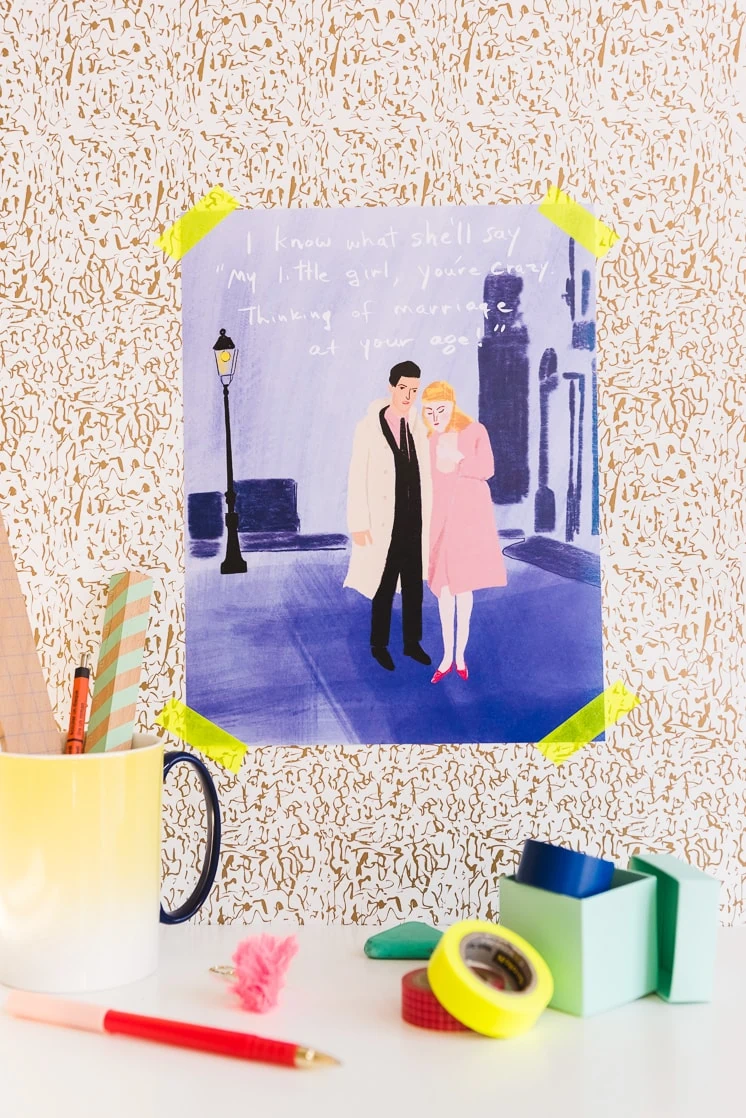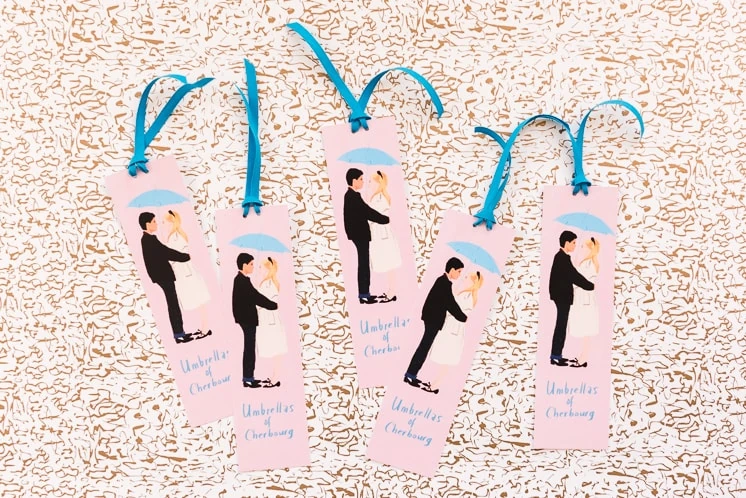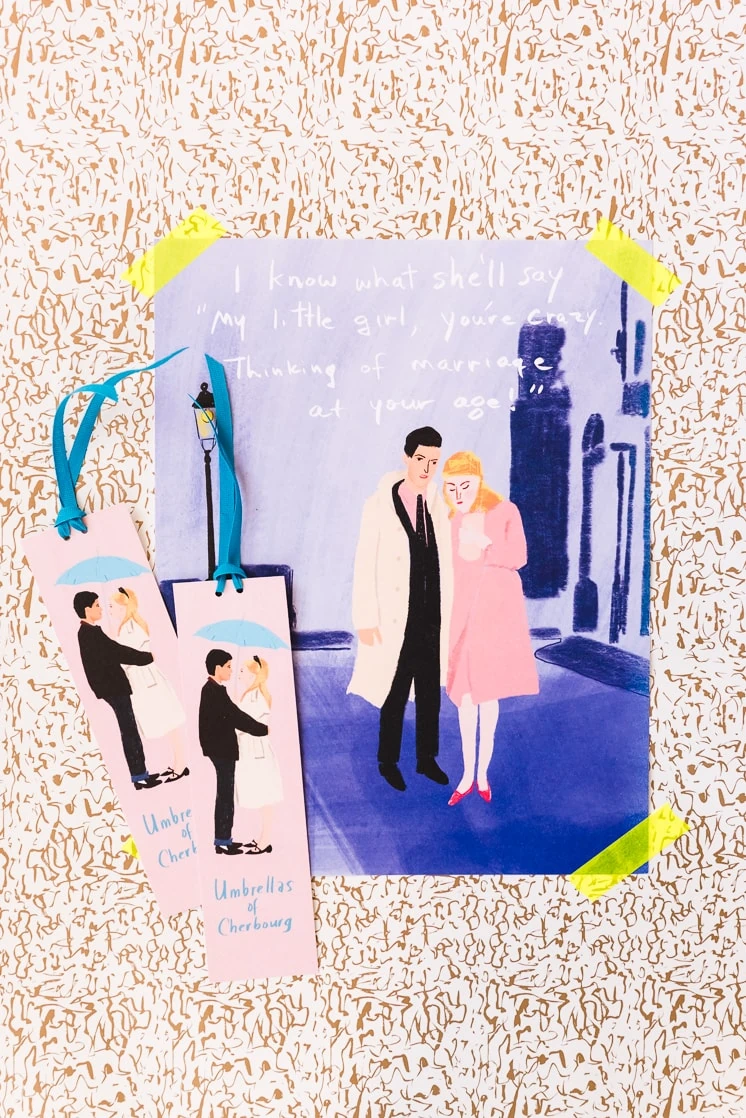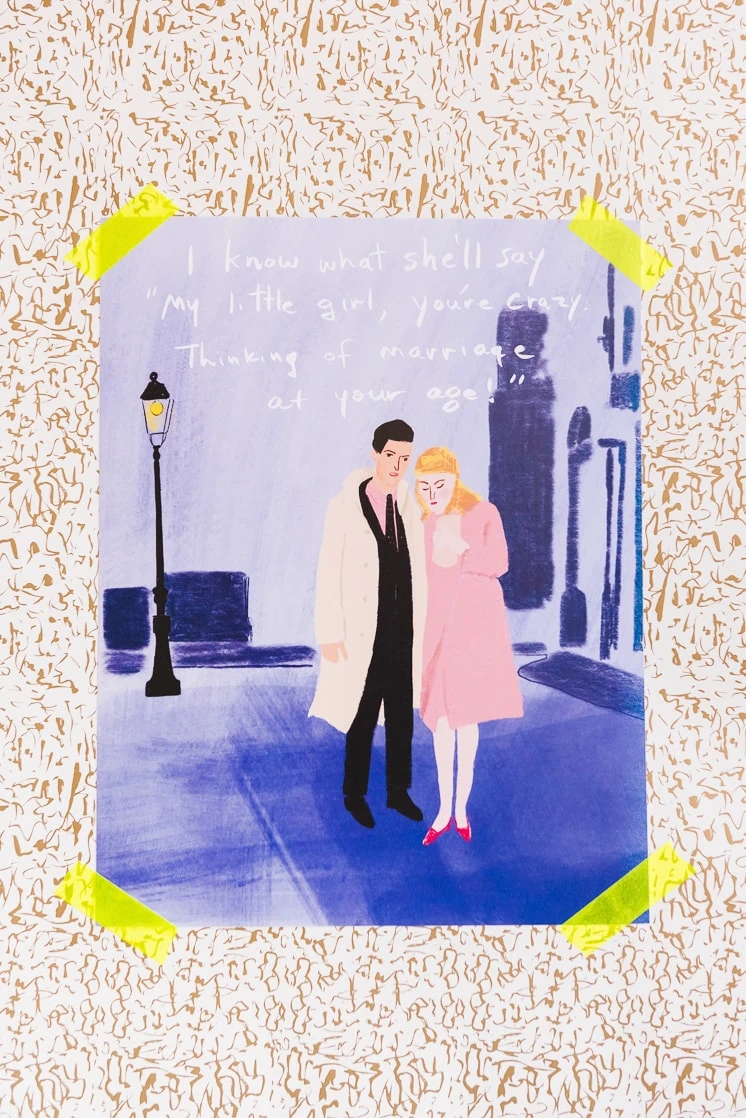Hello readers! Did you watch The Umbrellas of Cherbourg? How did you like watching and discussing a movie, for a change? Although we do love books, we hope it was a fun deviation from the “norm”. If you liked it, maybe we’ll do it again! We’ve got some questions below for you, some of which we may have asked or will chat about on Instagram—have you been following along? There are just so many colorful images to share!
Our fantastic featured illustrator this month is Patti Blau who designed a gorgeous printable poster and bookmark to go along with the movie. Yes, we know you don’t necessarily need a bookmark for a movie, BUT we kept with tradition. You’ll be learning more a Patti in an interview on Thursday, but for now, enjoy her beautiful artwork.
Umbrellas of Cherbourg discussion questions
- The Umbrellas of Cherbourg has a main theme song, but the director Jacques Demy and composer Michel Legrand also introduced an experiment of sorts, where every line was sung. Did you enjoy this style? Why or why not? Roger Ebert commented, “This style would seem to suggest a work of featherweight romanticism, but “Umbrellas” is unexpectedly sad and wise, a bittersweet reflection on the way true love sometimes does not (and perhaps should not) conquer all.” Do you agree?
- **SPOILER ALERT** Geneviève marries Roland, a wealthy man who falls in love with her after seeing her at her mother’s shop. He agrees to marry her, even after finding out she is pregnant. Roland says to her mother, “Geneviève is free.” But is she really? As a soon-to-be unwed mother in the 1950s, whose own parent is also struggling to keep her business going, does Geneviève really have much of a choice? There is no guarantee of a future with Guy, whose letters to Geneviève are few and far between. Her unborn child will need a provider, and she must accept that Roland is the practical choice. What are your thoughts on the customs and cultural expectations of women at that time?
- The film is broken into three parts: The Departure, The Absence, and The Return. All of them have a certain feeling to them—joy and bliss, then doubt and uncertainty, and finally sadness and resignation. Guy comes home to find the shop has closed, his aunt died, and Geneviève has moved on. A few years later, they both meet at Guy’s gas station, the final scene. How have they both changed and matured by the end of the movie?
- Let’s talk about the COLOR! Several critics have written about the changing colors of Geneviève’s wardrobe—bright, passionate colors when she reveals her pregnancy to her mother, blue to show her vulnerability while she is at home, missing and waiting for Guy, white when she meets Roland for the first time, and even a constant, steady black for Roland himself throughout the movie. Was all this color symbolic, and did you even think about that, or just enjoy it like eye candy? (‘Cause, let’s just admit it, it totally is…)
- Laaaaast question….so, did you like it?? 🙂 Tell us! Would love to hear your thoughts!
If you enjoyed The Umbrellas of Cherbourg, you might like:
Download the poster here
Download the bookmark here
The Lars Book Club is run by Julie Richardson






